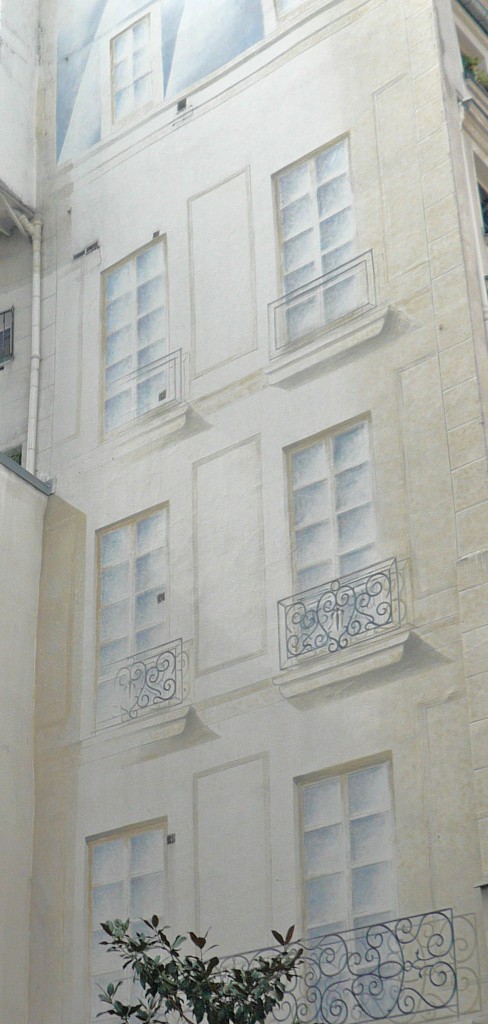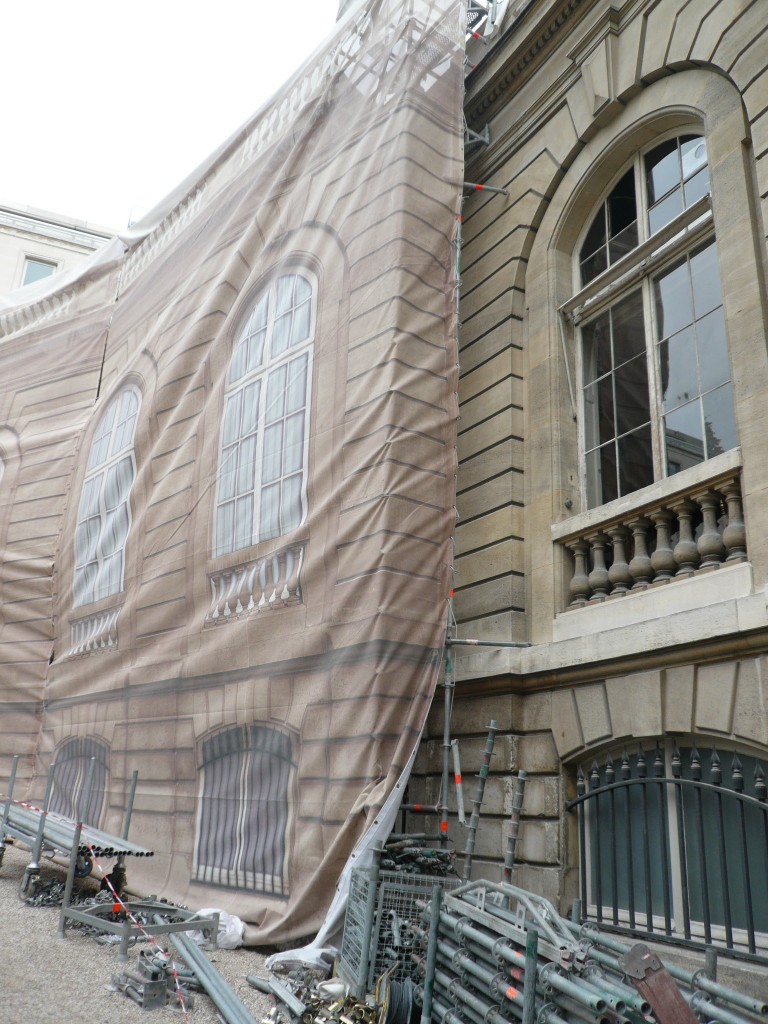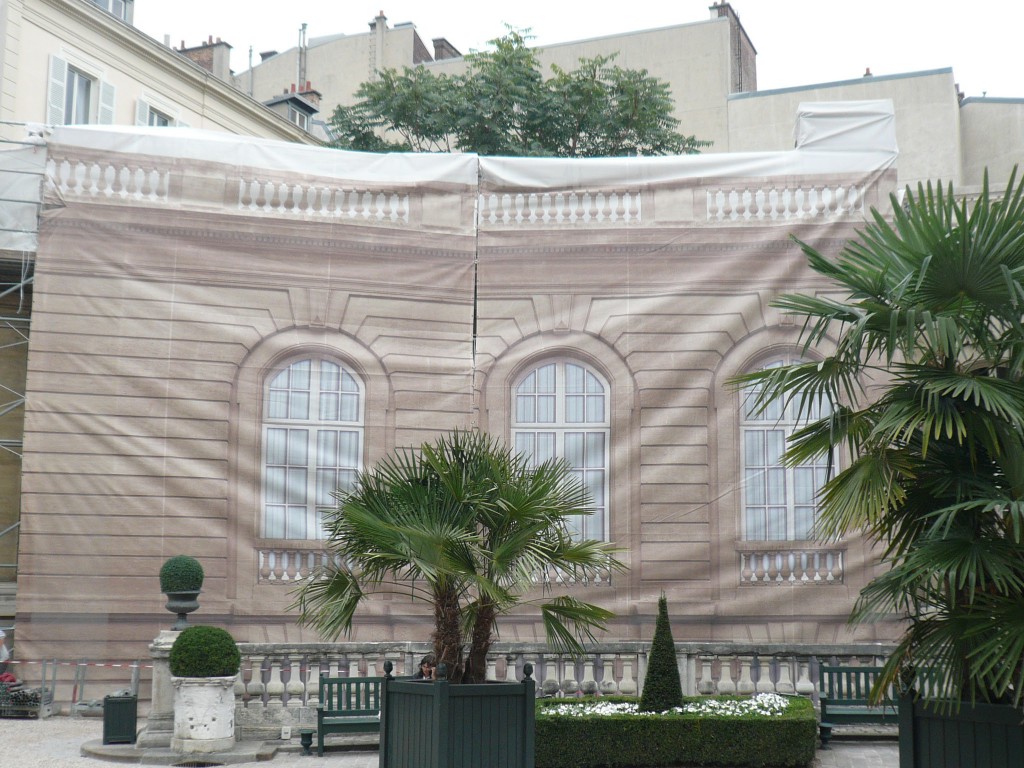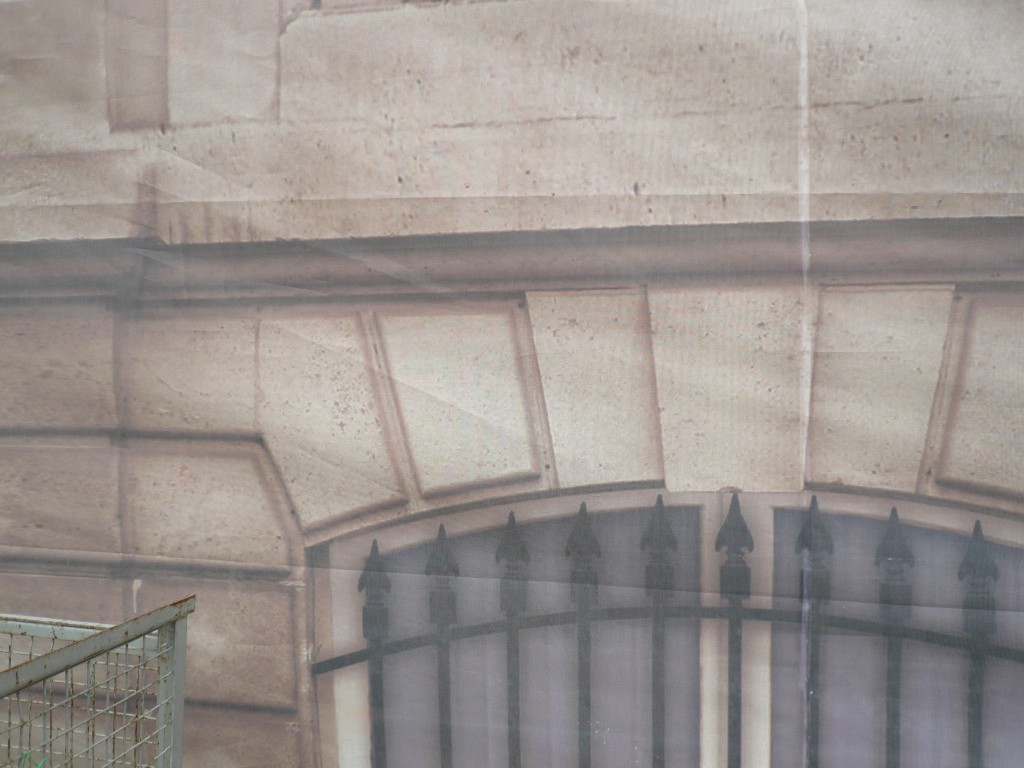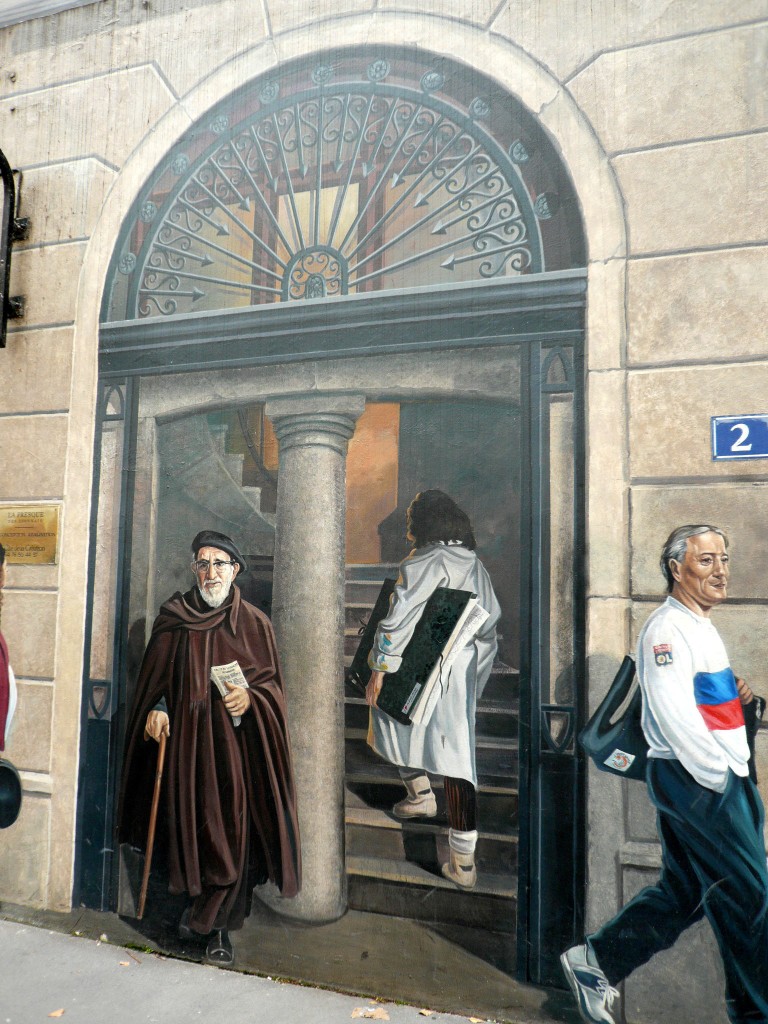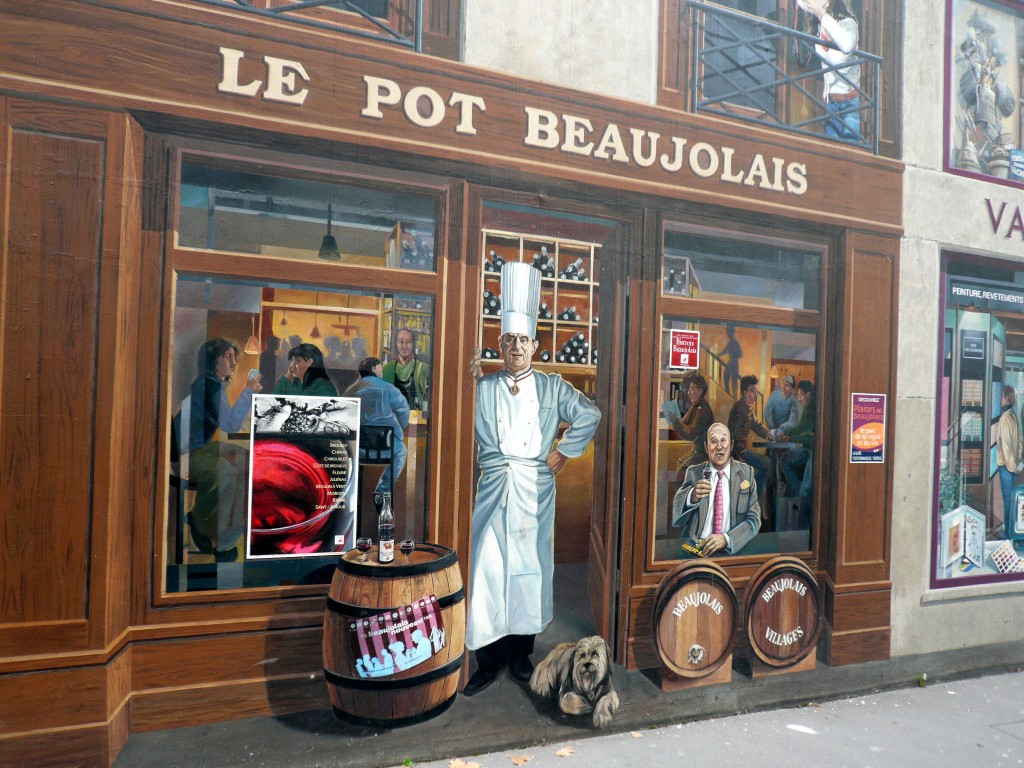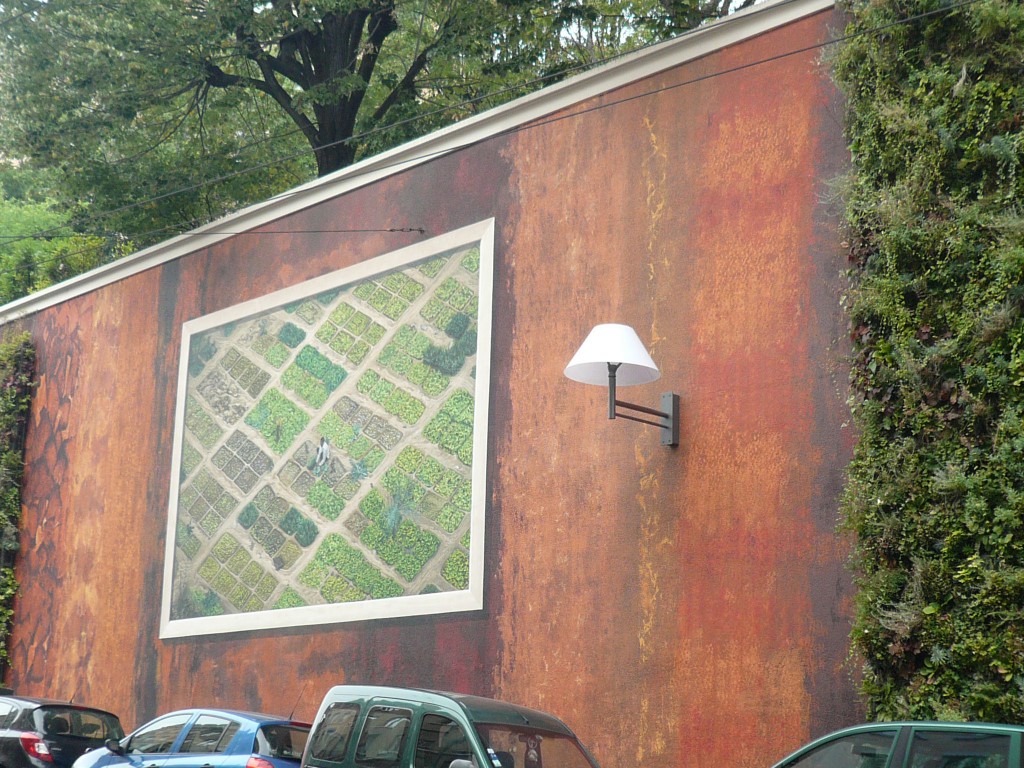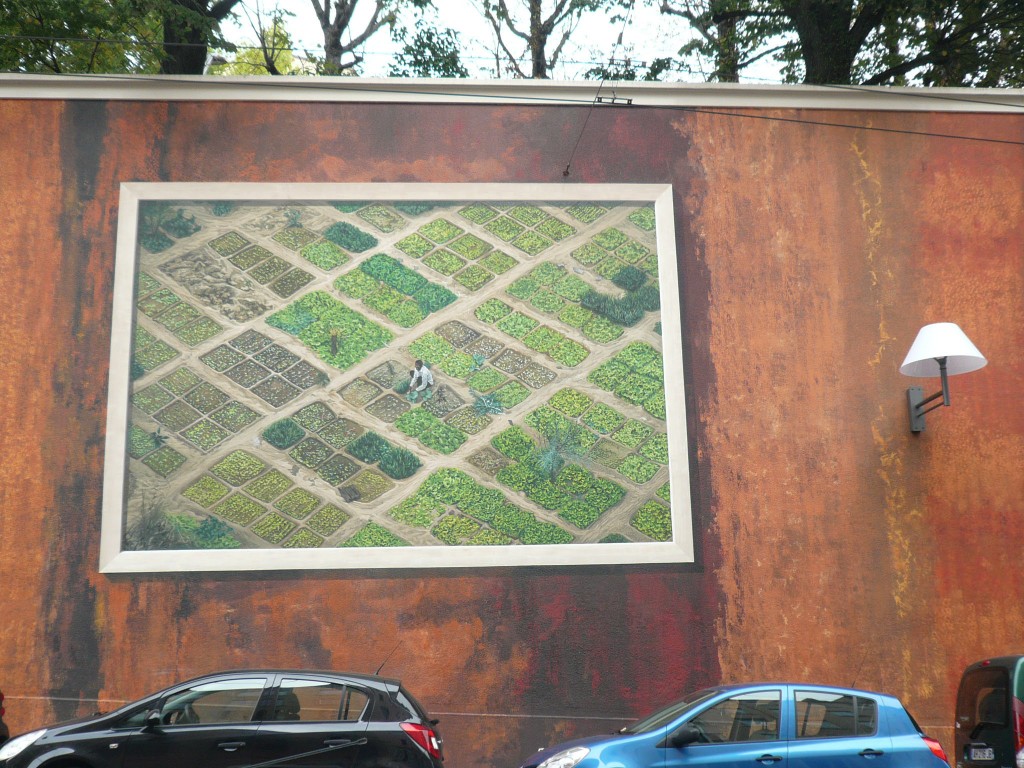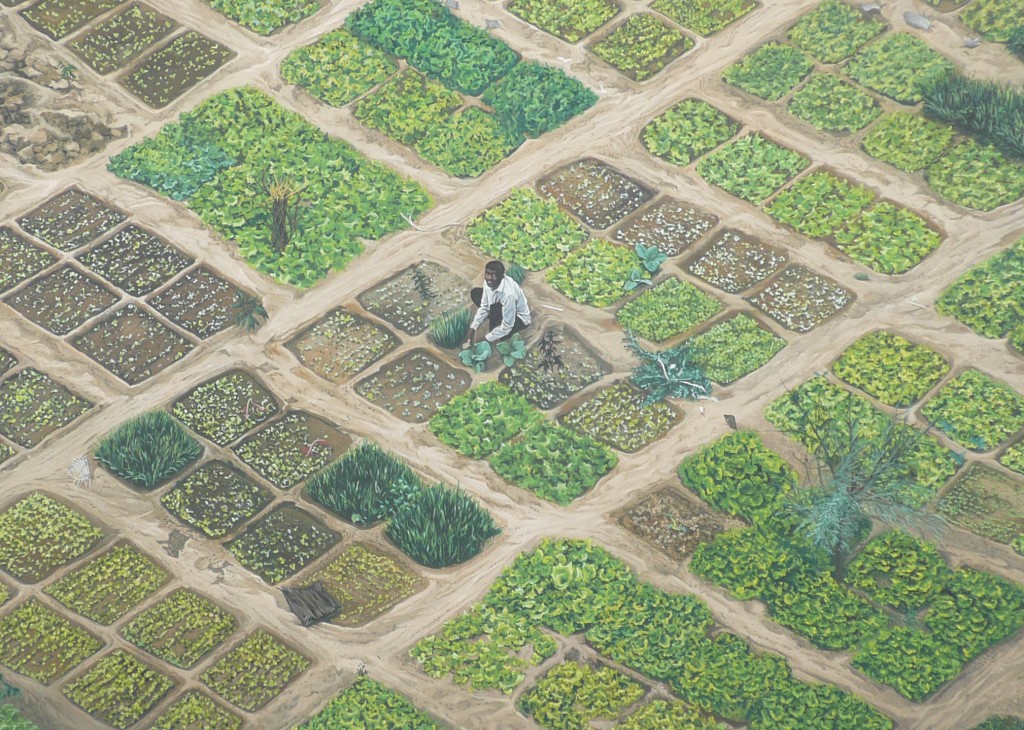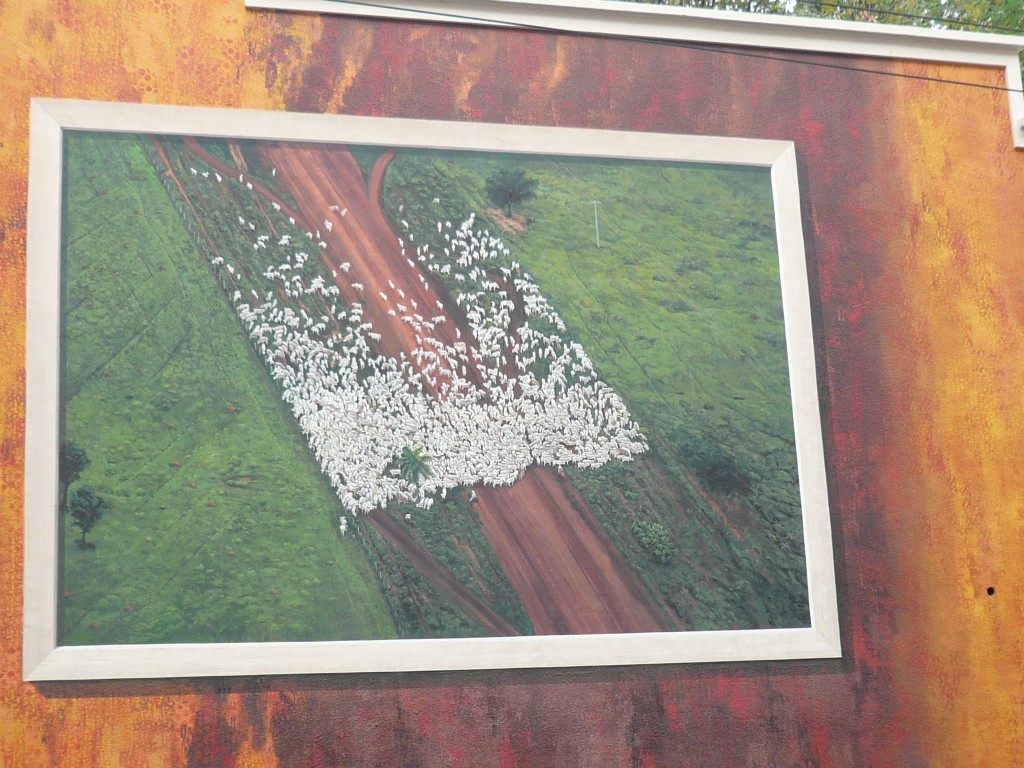Many large murals adorn the French urban streetscapes. Some serve a sole decorative purpose: to transform unsightly blank walls or hide temporary renovation work. Others are political or whimsical. However, when it comes to the beautification of the city, the murals are a class of their own, evoking a feeling of admiration, amusement, or serendipity to all passersby. As a “Thank you” to the artists and patrons who toil to bring fine art to the streets, I want to share with you their masterpieces.
Facades in Paris
The following are other manifestations of trompe-l’oeil paintings done on drop clothes. Historical monuments undergoing facelifts are sometimes hidden under gigantic drop clothes mimicking to perfection the actual appearance of the facade, to a point where the eye can become deceived. Such extreme care spares the monuments’ unsightly plastic coverings for the duration of their repair, and does not deprive the tourists of its architectural beauty and classical lines. In this case, the trompe l’oeil does not suggest something unreal, but replicates and perpetuates the splendid hidden face of the monument.
Undergoing renovation work at the Jacquemard-Andre Museum in Paris.
The work is hidden under gorgeous faux painted drop clothes replicating the classical architecture of the museum façade.
Facades in Lyon
Building of the “Lyonnais” located in Lyon, France.
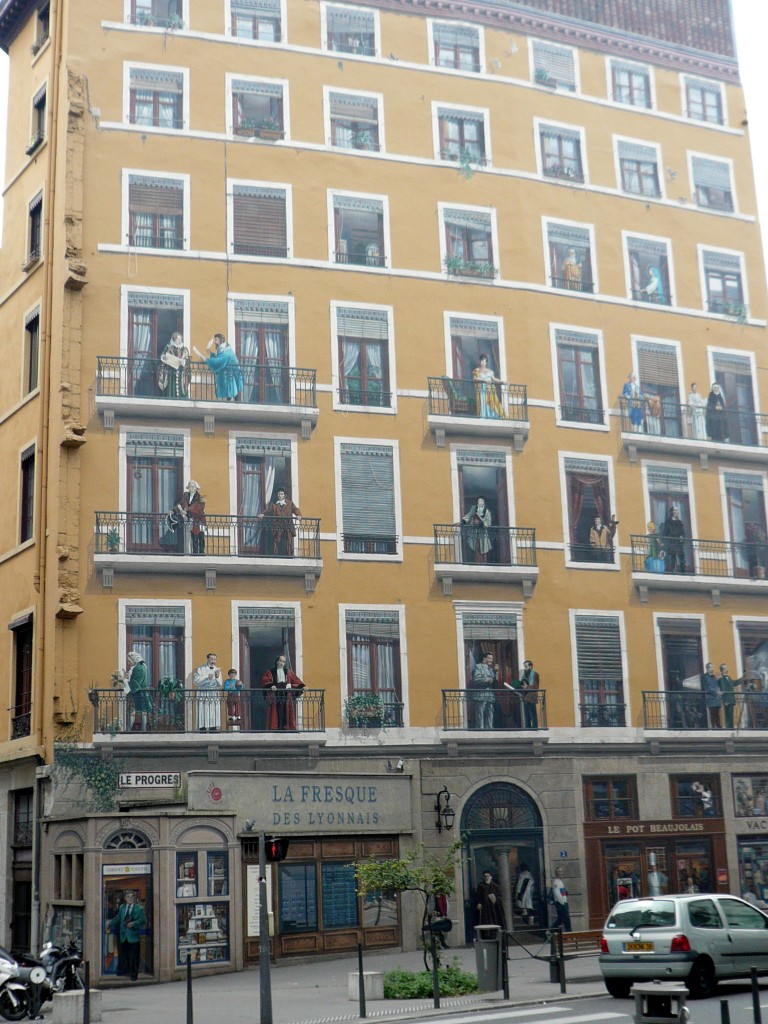 The building portrays on its facade the 31 most famous Lyon denizens: they appear in a chronological order, the most ancient being on the highest floor of the “Trompe l’oeil” façade.
The building portrays on its facade the 31 most famous Lyon denizens: they appear in a chronological order, the most ancient being on the highest floor of the “Trompe l’oeil” façade.
“La fresque vegetale lumiere”, vegetal and light fresco. This very long wall covered partly with vegetation and lights, is also located in Lyon France.
It is another creation by muralists reunited in the “Cite de la creation” company, based in Lyon, France. These artists have reproduced pictures taken by Yann Arthus Bertrand, representing threatened areas of the planet; they are respectively situated in Mali, Argentina, and Brazil.
Between each picture are mimicked the various tones of earth that are typical of those regions. The lights come from huge wall sconces covered with lampshades to provide a more intimate atmosphere.


